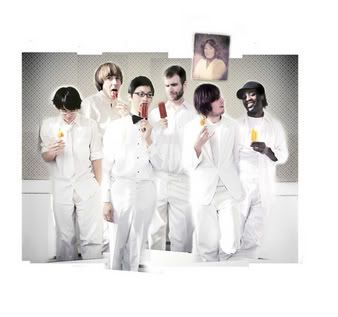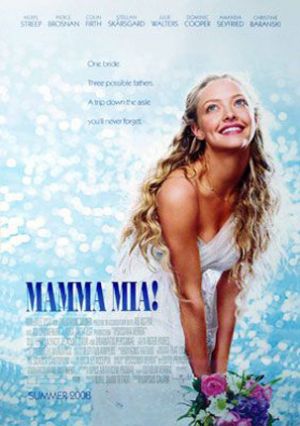
“So, what made you decide to go to Gothenburg?” enquired my family. At this point, I could have fabricated an elaborate admiration of a country that has resisted the onslaught of the Euro, and a lifelong fascination with trams and Abba. However, truth prevailed, and I had to admit that it was the result of a slightly inebriated game of “pin the tail on the Ryan Air cheap flights map”, with a little help from Gothenburg native Jens Lekman’s album, Night Falls Over Kortedala (which happens to be at the end of our tram line). But as we cycle serenely across a city basking in midnight silence, the cool air off the Göteborg Älv brushing our faces and the curvaceous reflection of the Operan swimming in our eyes, I’m convinced this is the start of a Scandinavian love affair.
Our hostel, Slottsskogen Vandrarhem, in inauspicious concrete turns out to be a bustling haven of Erasmus students frantically apartment searching, Asian backpackers blogging their experiences on Macbooks in the corner of the friendly book-laden lounge, the heart of the hostel, and noisy German school children (who one morning meet their comeuppance playing knock-a-door down the corridor, waking up an unimpressed 6ft 4 Finnish goth). We make friends with our Parisien roommate, Pauline, who takes us to a tacky but fun club in the heart of the city. We’d read that alcohol in Scandinavia is supposed to be extortionate, but a five hour long Happy “Hour” (about £2.20 a drink) left us sated when the prices jumped back up to 48SEK (about £4.30).

Belying its metropolitan status, the city is closed for business from about 4pm Saturday, and the whole of Sunday, so we borrow bikes free of charge from the hostel (“here’s three sets of keys – if you can make the bikes work, you can take them,” says the trusting girl at reception in perfect English), and meanderingly cycle sunkissed down 12km of clapboard coast to Saltholmen (from the air, the houses look as though they’re made from Port Salut), the ferry port for the Southern Archipelago, a cluster of eight verdant islands not dissimilar to the Isles of Scilly (but where the Scillonian costs close to £100, this ferry was £1.20). To say that we’re amateur cyclists would be far overstating our prowess on the pedals, but the clearly marked cycle paths and sit-up Dutch bikes make for an easy ride, with few mishaps other than chains flying off at high speed. We hop off the boat at peaceful Vrannö, the smallest island, comprising 382 residents (although we’re not sure where they were), a fleet of curious bicycles with huge loading pallets mounted on the front, and a crystal clear, unfettered coastline. We ferry back, and cycle a more direct route home, through Slottsskogen Park, where we see penguins, parrots and pelicans (and other animals that don’t begin with the letter P). Sweden is apparently in the midst of a baby boom, evident by the number of men made all the more handsome by the babies papoosed to their fronts. Whole families cycle together, and the sight of giddy blonde children racing down cobbled streets is affirming – we don’t see an advert for Wii all week.
Everyone had told us how expensive Sweden is, but the only things we pay for are food (the same price as in England), and travel – we spent 100SEK (about £8) on a joint travel card, and after taking 12 trips on it, still £2 remained when we left – beat that, National Rail!). Museums are free as we’re under 25 (not that they ever wanted to check – we were shrugged through without even the promise of ID), and really challenged our preconceptions of Sweden’s national identity (which, to be fair, we had guiltily only gleaned from Eurovision, Ikea, and Swedish pop music).
Our metonymic association of Ikea as representative of Sweden is certainly swayed – the fascinating Röhsska Museet contains a chronological exhibition of furnishings, with every corner questioning what constitutes Swedish design. When the exhibition reaches the seventies, great heed was paid to flat pack design, and the ugly uniform hegemony of homes across the world, with their generic Billy bookcases and Oslo beds. There definitely seemed to be an artistic rebellion against Ikea’s usurping of the homeware market, from Design Torget – a chainstore paradoxically dedicated to showcasing and selling the work of independent Nordic designers – to the beautiful and varying typography throughout the city (Times New Roman and Comic Sans seem unofficially banned from the city’s signage, thankfully).

With its beautiful, stoic university buildings and the romantic village feel of Haga’s cobbled streets, Gothenburg is reminiscent of Oxford and Paris, yet never feels pretentious, or that it’s trying to conform to rose-tinted expectations of how a city should be, it’s casually dismissive of trends, and artlessly welcoming both aesthetically and in spirit. On Monday evening, exhausted after walking miles through the town, we collapse waiting for a tram at Järntorget, and spot a club called Pustervik, advertising a “Pingisklubben” for that evening. A quick Babelfish search on the hostel’s free internet tells us that this is a ping-pong night (and mentions cottages and babies…never trust internet translations!), so we group together with six Germans, a Dutch guy, an Australian, a Lithuanian and an Italian for one of the funniest evenings I’ve ever had. Pingis is a ping-pong table in the middle of the room, with 20 paddles passed around the crowd – everyone takes one hit at a time, going out when you miss or hit the ball off the table, all to the tune of Radiohead, Sigur Ros, and Lykke Li amongst others. As more people go out, the remaining players run doggedly faster and faster around the table, eventually leaving two players to battle it out. We stumble home, to find a new girl asleep in our room, and she’s gone by morning. It reminds me of Lost In Translation, hotel rooms providing the possibility for romantic surprising encounters with people in a similar state of culture shock.
Tuesday takes us and a new Dutch friend around the city’s numerous museums, with highlights including a skateboard exhibition at the Röhsska, and Tomorrow Always Belongs To Us, a showcase of 11 young Nordic artists, whose work ranges from flashing light installations that you’re supposed to watch with your eyes shut, to lifesize gnarled papier maché humanoids twisted under the weight of their self-imposed capitalistic chaos. The museum is an aesthete’s dream, and a brilliant film called Surplus: Terrified Into Consumerism, by Swedish director Erik Gandini catches our eye – set to music by the Gotan Project, and other slippy techno/dubstep beats, he samples and loops excerpts of his interviews with people in the throes of consumerism, lip synching Cuban leader Fidel Castro into saying “I LOVE THIS COMPANY!”, taken from the sloppy mouth of a sweaty, hyped up Microsoft motivational speaker. We’re in stitches, and have to tear ourselves away before the museum shuts.
For our last night in the city, we decide to have a barbeque in the gorgeous Slottsskogen Park, surrounded by babbling ducks and our proud bikes silhouetted against the lake. We promise one another that we will definitely be playing “pin the tail on the Ryan Air flight map” again, for the thrill of the unexpected and the secret internal pride at our intrepid international trailblazing – we feel like pioneers, and leave Scandinavia’s biggest port exporting excited memories as our cargo.
I am in love with Sweden.
















